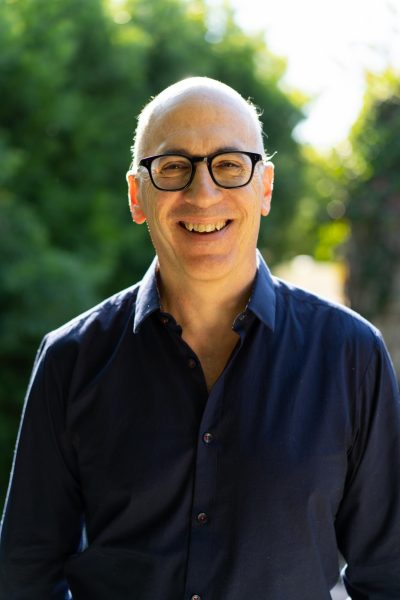Writing for Television with Michael Sardo – The Williams Record

This semester, the English department introduced the first-ever screenwriting class with the aid of Visiting Lecturer in English and Emmy-nominated writer and producer Michael Sardo ’81. Sardo’s course, ENGL 291: Writing for Television, aims to imitate the magic of a writers’ room in a College classroom. The class teaches students how to develop their unique story ideas into television pilots. For Sardo, “the writers’ room is a sacred space, where you can say and reveal really personal stories.”
Sardo discussed how the structure of the course encourages participation and collaboration from the students. “The idea of [the course] is not for me to just talk forever about television and give some assignments,” he said. “It’s a very interactive and supportive environment in a very private [classroom setting]… I think it’s always a better process for human beings to be in a room together working on [TV shows] together.”
Previously, Sardo taught a similar television writing course at Columbia University’s School of the Arts. Though he enjoyed his time there, he said there was a unique appeal to working at the College. “Here, because everyone’s new [to TV writing], no one has bad habits — they get to only develop good ones,” he explained. He added that he recognizes the same intellectual curiosity and diligence in his students now that he saw in his peers during his own time at the College.
Sardo explained his process of selecting different students for the class. “You want someone with a strong voice, a strong sense of what they want to do, or at least a strong curiosity about what they want to do [in the pilot],” he said. After the course was overenrolled, Sardo asked interested students to submit a potential theme for their show and then selected 12 to be part of his class. “I just looked at the ideas, the kind of themes people wanted to write about… and thought, ‘How can I try to create alchemy among the people?’”
The class is structured around active collaboration. “There are 12 people [writing] 12 pilot scripts for a series,” he said. “That requires the cooperation of the other 11 people who are not working on that script.” While students work on their own scripts, they are also expected to review and comment on their classmates’ work.
The course does not assign reading other than the students’ original scripts, with the exception of one text: Stephen King’s On Writing. “Stephen King does it better than anyone,” Sardo said. “He [shows] how naturally the story comes, that it doesn’t have to be this forced process if you can plug into the right things inside of you.”
On Writing is primarily about how to write captivating fiction, but Sardo explained that television writing is fundamentally similar to fiction writing, just in a different medium. “If you can feel the story in the right way, it starts to tell itself — the characters start to talk to you,” he said, referencing mediums that span from fiction novels to screenplay, “I just put it in this form of a script for TV or film.”
When considering the value of a pilot episode, Sardo noted that many television watchers turn shows off before the two-minute mark. He explained that one important element of Writing for Television was instructing students on the importance of this two-minute teaser. “[The viewer] should know from the first couple of minutes what the show is about,” he said. “Netflix used to use as its metric [that if] you watch the first two minutes, you’ve watched the show. They’re expecting you to know what the show is in two minutes.”
He added that developing a pilot episode is particularly challenging, since an elaborate story cannot be told in 40 minutes. The trick, he said, is to focus on a central conflict, which should include both internal and external elements. “In a good pilot, you introduce very quickly interesting characters and an interesting environment,” he said.
“A TV show is all about the relationships between the characters,” Sardo said when speaking of the unique elements of TV writing. “Now, [shows like] Ted Lasso [are] about a personal journey of this character and how he impacts other people. Atlanta is about the feel of these people in a unique place. So the nature of comedy [has changed]. It’s about these characters — the comedy is an essential part of it, but it’s incidental to each particular scene. There’s something bigger at stake.”
Sardo said that some of the most valuable lessons he’s learned in the TV and film industry include trying to understand the creator’s intention. “I always look at things critically in the sense of, ‘How does it work?’” he said. “But more generously, in the sense of, ‘Why was it made?’ I think that was the most valuable thing anyone said to me.”
Sardo hopes to use what he learned in the writers rooms to help students develop their ideas. “What I want to impart is an understanding of how television works, how scripts are developed, and what makes a show succeed,” he said. “[I hope] the class gives the students greater enjoyment of something that, I think, is an incredibly influential cultural form right now.”
“My own feeling is if Shakespeare were alive today, he’d be writing for television because he’d have unlimited budgets, access to the best actors in the world, and incredible amounts of audience,” he added.
Sardo said that he hopes the class will allow his students “to experience television and film in a different way, and to take that experience back into their own writing.”




